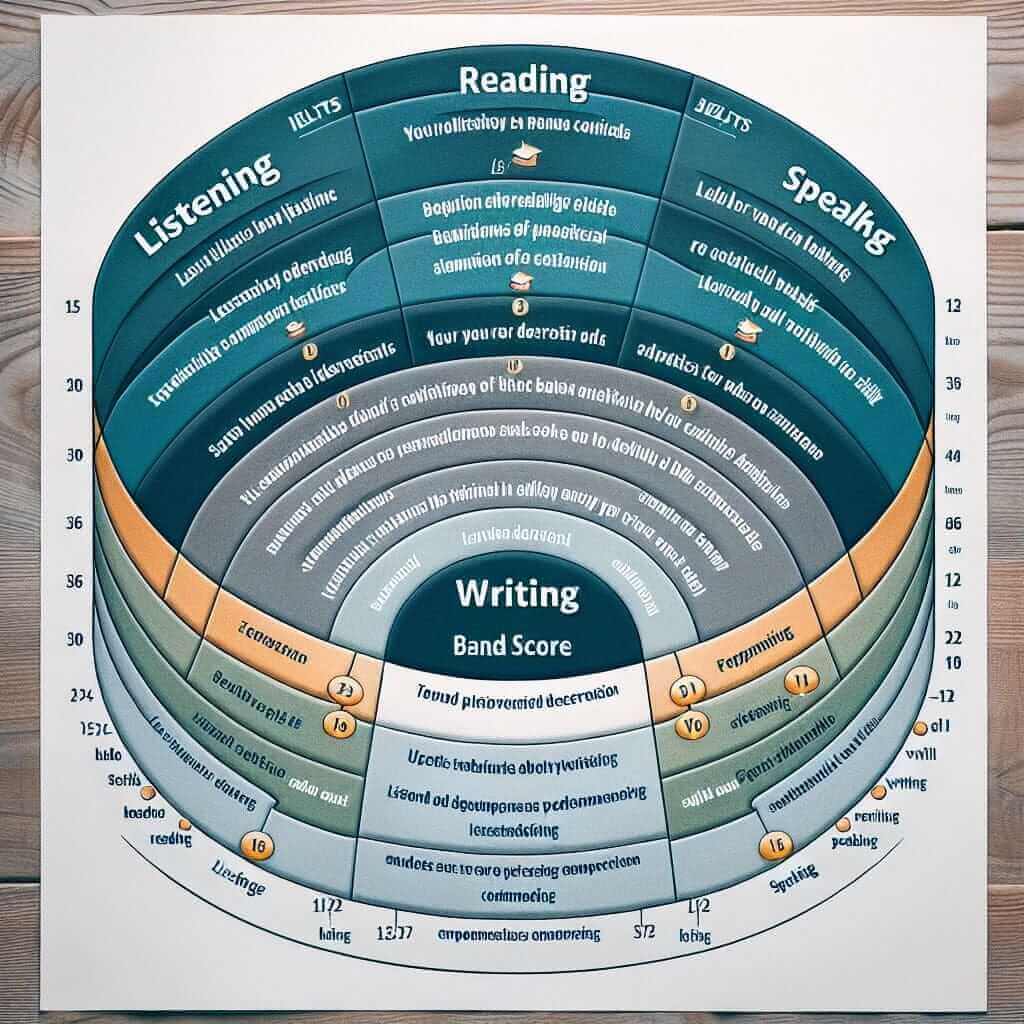Achieving a band score of 7 in the IELTS exam is a significant accomplishment, demonstrating a high level of English language proficiency. Whether you’re aiming for academic pursuits or professional opportunities, a band 7 opens doors to a world of possibilities. However, attaining this score requires dedicated effort, a strategic approach, and a deep understanding of the test format and assessment criteria. This comprehensive guide, crafted by an experienced IELTS instructor with over two decades of experience, will delve into proven strategies and insights to help you navigate your IELTS journey toward success.
Understanding the IELTS Band 7 Benchmark
A band 7 in IELTS signifies that you are a “good user” of the English language. This means you can:
- Communicate effectively: You can understand and convey complex ideas and arguments.
- Demonstrate grammatical accuracy: You have a good command of grammar with occasional minor errors.
- Utilize a wide range of vocabulary: Your vocabulary is broad enough to discuss various topics with some flexibility and precision.
- Comprehend and respond appropriately: You can understand and respond to spoken and written English in academic and social contexts.
Effective Strategies to Achieve a Band 7
1. Mastering the Four Skills
The IELTS exam assesses your abilities in four key areas: Listening, Reading, Writing, and Speaking.
Listening:
- Practice active listening: Concentrate on the audio, identify keywords, and anticipate information.
- Develop note-taking techniques: Jot down essential points without losing track of the recording.
- Familiarize yourself with accents: Expose yourself to various English accents to enhance comprehension.
Reading:
- Improve your reading speed: Practice skimming and scanning techniques to quickly locate information.
- Develop strong vocabulary: Actively learn new words and practice using them in context.
- Master different question types: Familiarize yourself with question formats like multiple-choice, matching headings, and sentence completion.
Writing:
- Understand essay structures: Learn the structure of different essay types (e.g., argumentative, descriptive) and practice writing within time constraints.
- Enhance your grammar and vocabulary: Use a variety of grammatical structures and vocabulary accurately.
- Practice proofreading and editing: Allocate time to review and refine your writing for errors.
Speaking:
- Develop fluency and coherence: Speak at a natural pace, connect your ideas smoothly, and use discourse markers (e.g., however, in addition).
- Expand your vocabulary and idioms: Use a range of vocabulary and idiomatic expressions to convey your ideas effectively.
- Practice speaking under pressure: Engage in mock speaking tests with a teacher or a language partner.
2. Utilizing Authentic IELTS Resources
- Official IELTS practice materials: Utilize official practice tests and sample answers to understand the exam format and marking criteria.
- Reputable IELTS preparation books: Choose books that provide comprehensive content, practice tests, and valuable tips from experienced instructors.
- Online resources: Explore reputable websites and platforms offering IELTS preparation materials, practice exercises, and expert guidance.
3. Analyzing Sample Answers
- Understand band descriptors: Familiarize yourself with the IELTS band descriptors for each skill to understand the specific criteria for a band 7.
- Study high-scoring sample answers: Analyze essays, letters, and speaking responses that have achieved a band 7 or higher. Pay attention to the language, organization, and ideas presented.

Examples from Real IELTS Exams
Writing Task 2: Some people believe that governments should spend money on public transportation, while others argue that it is better to invest in roads. Discuss both views and give your own opinion.
Speaking Part 2: Describe a time when you had to use your imagination. You should say:
- When it was
- What you had to imagine
- Why you needed to use your imagination
- And explain how you felt about it.
Essential Tips for Success
- Set realistic goals: Break down your IELTS preparation into manageable steps and track your progress.
- Create a study schedule: Allocate dedicated time for each skill and adhere to your schedule.
- Seek feedback: Have a teacher or language partner evaluate your writing and speaking to identify areas for improvement.
- Don’t be afraid to make mistakes: View mistakes as learning opportunities and use them to refine your skills.
- Stay motivated: Celebrate your achievements and remind yourself of your reasons for taking the IELTS.
Conclusion
Achieving a band 7 in IELTS is an attainable goal with the right approach, dedication, and consistent effort. By focusing on your weaknesses, practicing regularly, and utilizing effective strategies, you can confidently approach the exam and maximize your chances of success. Remember, the journey to IELTS success is a marathon, not a sprint, so be patient, persistent, and believe in your abilities!